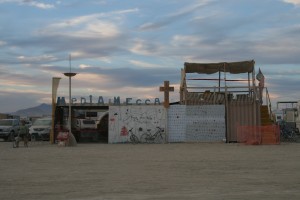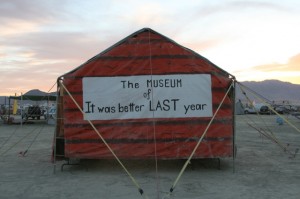Recently, the Electronic Frontier Foundation criticized Burning Man’s policy on rights to images taken at the Burning Man event. This criticism led to a heated discussion on boingboing. Burning Man representative Andie Grace, aka Actiongrl, has responded on the Burning Man blog here, which has been linked to a follow-up post on boingboing here.
While I can’t comment on the legal aspects of this matter since I’m not a legal expert, I can point out what I find fascinating about such controversies. People have opinions about what they think an organization should or shouldn’t do, including what legal form and practices an organization should adopt. And, people state their opinions, irrespective of whether or not they have any experiences with a particular organization, as demonstrated by comments on the boingboing discussion threads.
Expectations for “appropriate” activities are heightened for organizations like Burning Man, which depend on volunteer labor, pursue distinctive missions such as social change, and have high visibility because of media coverage. When confronting such expectations, organizations have to make a decision – do they address, much less acknowledge, such expectations? If they don’t respond to criticisms, they may lose their legitimacy from their constituents or the general public.
In responding to criticisms, the Burning Man organization has made a number of changes, including publishing their finances and making activities more transparent. On the other hand, they have also defended policies that they believe are needed to protect the Burning Man event from co-optation by other interests.
What would life be like if people demanded similar accountability of all organizations, and organizations responded? Northwestern B-school Prof. Brayden King discusses how this process works (and doesn’t work) here.


